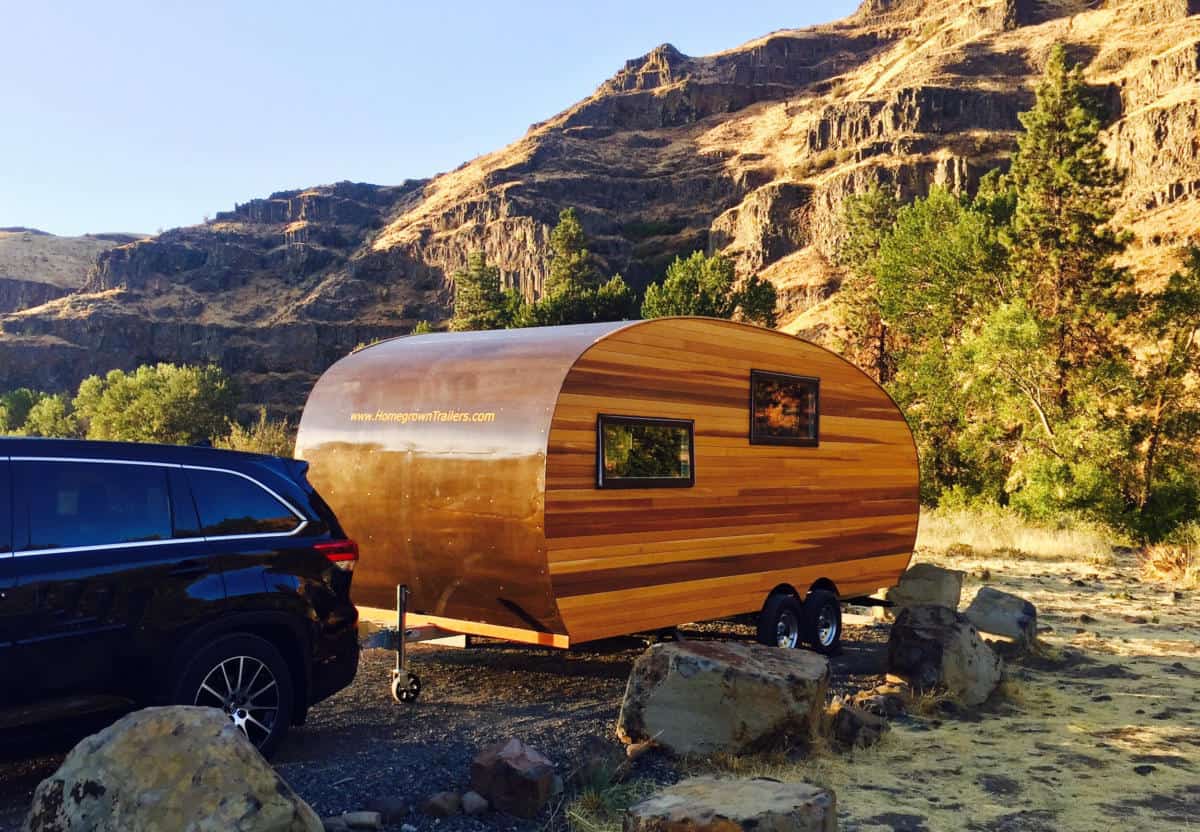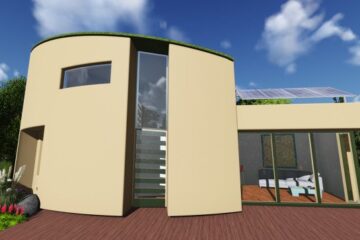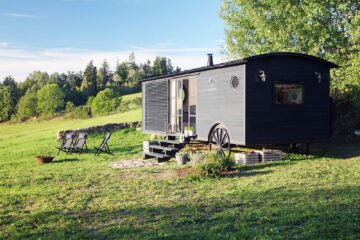Trailers are fun to take a holiday in, and the teardrop-shaped ones are cool from the inside out. This trailer, designed by the startup Homegrown Trailers of Woodinville, WA, is made of wood, which gives it an extra bit of charm. It’s also large enough to be considered a tiny house and can function completely off the grid, while it is also built using renewable materials.
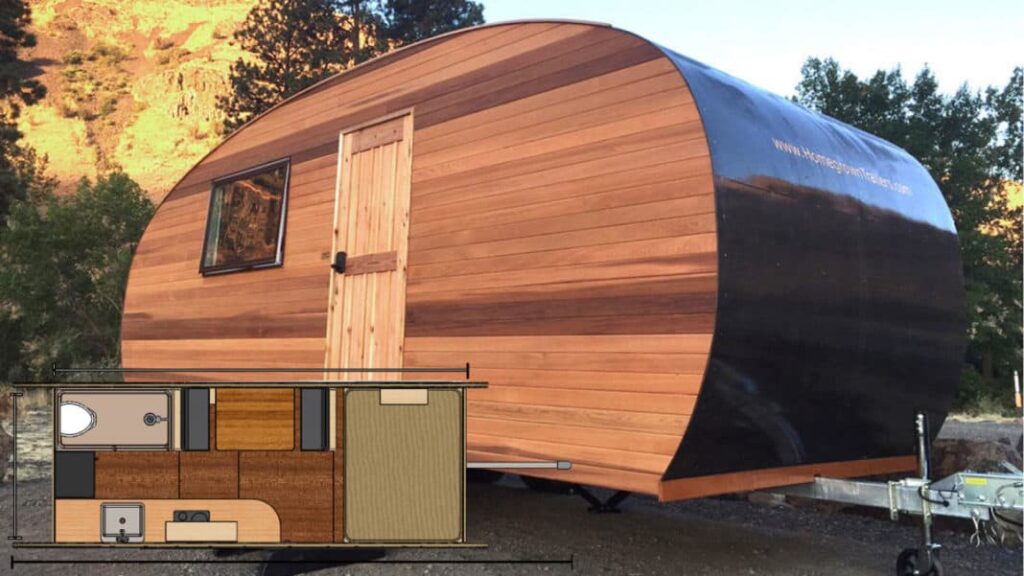
The external dimensions of the trailer are 18 x 7.4 x 6.9 ft (5.4 x 2.2 x 2.1 m), and it weighs 3,000 lb (1,360 kg). This means that it can fit into a standard-sized garage. The interior yields 94 sq ft (8.7 sq m) of floorspace, which is enough to sleep four people. There is also a pop-top roof section, which gives some extra headroom. The trailer was built using FSC-certified wood, cork, and bamboo.
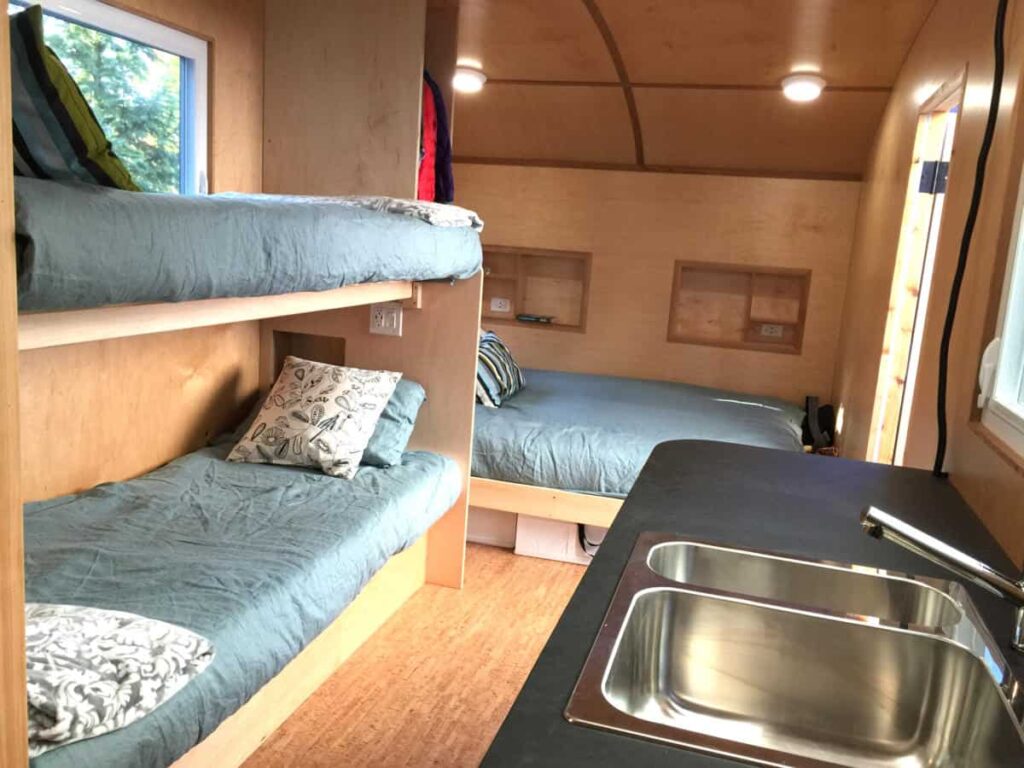
The trailer comes equipped with a kitchen that features a mini fridge and an induction cooktop. The bathroom features a composting toilet. Sleeping is provided via a pull-out bed that doubles as the sofa during the day, as well as two bunk beds.
The trailer has no RV-style electrical hookup because it gets all the needed electricity from the 800 W solar array mounted on the roof. The harvested energy is stored in a built-in battery, which, according to the company, can last up to five days without a charge, depending on what is plugged in, of course. On future models, they are planning on installing wind power. The trailer also comes with a 12-gallon (45-liter) fresh water tank, has energy-efficient LED lighting installed throughout, and is fitted with Energy Star-rated appliances.
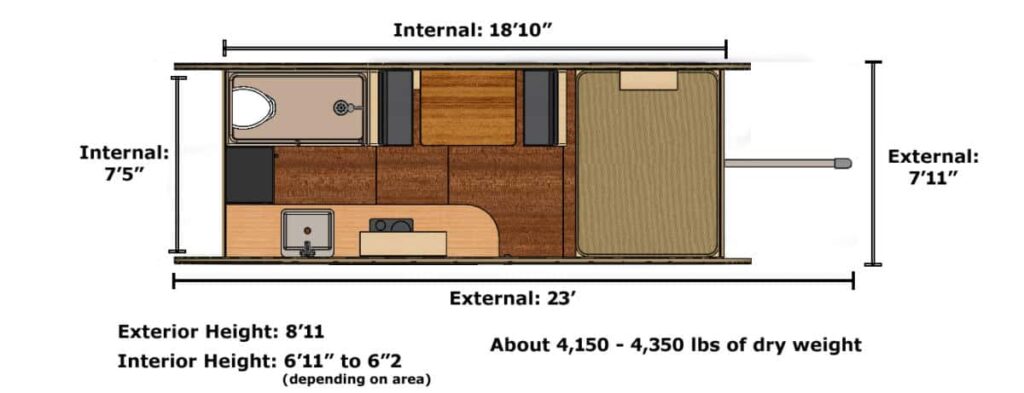
The Homegrown Teardrop Trailer is more than just a stylish camper—it’s a self-sufficient, eco-friendly tiny house on wheels designed for modern adventurers. Built from renewable materials like FSC-certified wood, bamboo, and cork, it combines comfort with sustainability.
With solar power, energy-efficient appliances, and off-grid capabilities, this compact trailer makes it possible to travel freely without sacrificing convenience or your environmental values. Whether you’re seeking weekend getaways or a long-term tiny living solution, this innovative design proves that sustainable travel can be both practical and beautiful.

